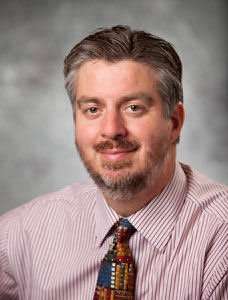
The news coming out of Emporia last week, with at least 30 members of the faculty of Emporia State University fired on one day, was terribly sad. Not just because the firings were a blow to the education of hundreds of ESU students, but also because it reflects a failure to understand just what, realistically speaking, higher education in Kansas should be all about.
The population of Kansas overall is growing at a slow pace, relative to the rest of the country—and our rural areas are mostly shrinking in population, sometimes dramatically. This is the reality which all the universities and community colleges operating under the Kansas Board of Regents umbrella, and all the different independent colleges and universities across Kansas, have to deal with. Add to the decline of potential college students the burden of tuition costs, the plenitude of educational alternatives, and the many re-evaluations which the pandemic brought on, and it is obvious that Kansas’s colleges and universities must rethink how they do business.

Which they have done, and continue to do. It is wrong to suppose that the faculty who teach classes, run workshops, administer internships, and provide training are removed from the kind of experimental strategies which the aforementioned pressures make necessary. On the contrary, it is those faculty who do the legwork in figuring out how to combine old programs or innovate new ones, and reconstruct majors and courses to reflect diverse student needs. This has happened multiple times at my institution over the years that I’ve taught here, and almost all the faculty I know at different institutions here in Kansas have gone through the same.
Why do all that work? There are cynical answers, to be sure. But mostly, it’s because teachers at those schools have committed themselves to passing on their knowledge to Kansas’s students, and that means meeting students where they are: in those various cities and towns, large and small, in all those distinct regions, and developing educational approaches to serve those differing needs. It means making our colleges and universities “native to their place,” to quote Kansan Wes Jackson—and long-term job support to Kansas’s faculty helps make that possible.
Which is exactly what President Ken Hush has undermined at Emporia State, by getting permission from KBOR to fire tenured faculty without any particular explanation. He sold it as grand plan in “workforce management,” dismissing incremental approaches to re-developing ESU as insufficient. Perhaps Hush sees this as an ideological win over a bunch of supposed radicals, but in practice tenure—which varies greatly from one institution to another—doesn’t promise faculty any kind of lifetime intellectual isolation. Rather, by providing limited job protections (like due process guarantees that they will not be hurriedly or arbitrarily terminated), tenure enables those with the necessary expertise to take the time to build creative, lasting connections in the midst of students’ ever-changing educational needs and situations. A building which Hush’s decision has now made harder at ESU, crossing a line which Kansas higher education really can’t afford to break.
In our state, tenure is best understood as a protection which encourages faculty to root themselves in and develop a real understanding of the particular, sometimes shrinking, communities they serve. Emporia State does that, just as Fort Hays, Pittsburg State, Friends University, and many others do. ESU will no doubt continue to provide some of that unique service to those Kansas students who need it—but there will be less of it now in Emporia, and that’s a shame.
Dr. Russell Arben Fox teaches politics in Wichita.






